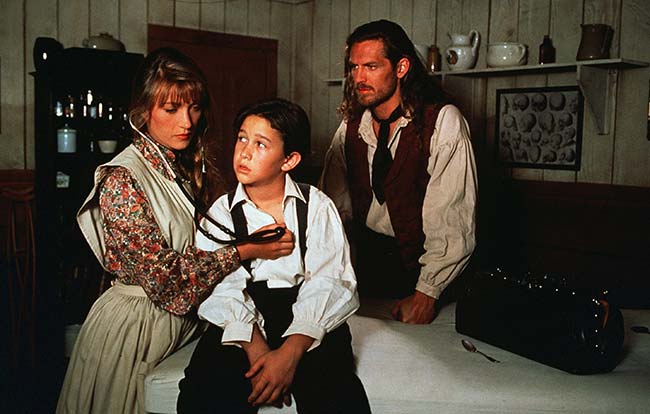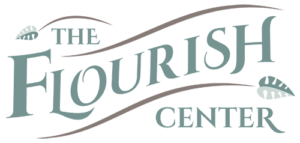
by Jen Owen, N.P. | Oct 29, 2019 | Integrative Medicine
When I was a little girl, I was always the nurse whenever anyone got hurt. I cleaned the wound with merthiolate turning the skin bright red and carefully applied a bandaid.
I was inspired by TV heroes like Doc Baker on Little House on the Prairie and Dr. Quinn Medicine Woman. It wasn’t just their medical skills that impressed me, it was the passion with which they cared for their patients and their communities.
They didn’t simply try to cover up symptoms with medications and they always took into consideration the life circumstances of each person. They took time to listen and they cared for their patients like family. They truly practiced integrative care.
What the heck happened?
How did our healthcare system get so broken? How did it become so profit-based instead of people-based? How did our time with our providers become 10 minutes (if we’re lucky)? How did we get focused on surgery and medications as the only solutions?
The answers to all of that are complicated and I sure don’t know them all!
What I do know is that I’m dedicated to bringing back that old school vibe. I want my clients to feel heard, to have time to tell me the whole story. I take into account the whole life situation for each person. I don’t reach for solutions that simply mask symptoms.
Even in the natural medicine scene, well-meaning providers have forgotten how to deeply care about people. I’m seeing supplements used like substitutions for prescription drugs. I see treatments continuing to be focused on treating the physical body and very little attention being paid to the emotional or spiritual bodies
When I became a NP and worked in a holistic practice, I advanced my knowledge and learned about specialty testing and supplements as treatments. I continue to use these modalities and find them very valuable. My concern with all of this has been that the “root of the problem” rarely starts as a physical symptom and when we only work with the physical body, we are missing the boat on true wellness.
We understand when something big happens like a death in the family, that physical symptoms might ensue. I wonder why we forget that smaller circumstances also cause physical symptoms, for example, headaches from stress, gut issues from worry, and even more subtle shifts.
When someone got sick on the prairie, Doc Baker helped them get comfortable and then set out to learn what was really going on. He knew that figuring out where the problem was really coming from was the only way to truly bring about a “cure”.
That’s how I do things at FLOURISH…old school care, taking care of you as a whole person, and finding the least-invasive, yet most-effective means to help you feel better and get on with living life.
Come and see for yourself. I’m now accepting new clients. Click here to book your consult now.

by Jen Owen, N.P. | Oct 21, 2019 | Mind-Body Medicine
This past weekend, my husband and I watched the movie Free Solo, which highlights the rock climber, Alex Honnold, and his famous rope-free 3000-foot ascent in Yosemite. I could go into great detail about how disturbing this movie was for me at points as the mother of an avid rock climber and someone who is fairly terrified of heights…and those are stories for another day.
What fascinated me the most about this story was the part about the research done on Alex’s brain. They performed a MRI on Alex while they relayed images to him, many of which elicit fear in most human brains.
When fear occurs in most of us, the amygdala in our brain fires. This brain area becomes activated causing us to feel fear. This fear makes us at least pause and reconsider what we are about to do, in order to hopefully keep us alive. The amygdala in Alex’s brain did not fire with the normal fear-inducing stimuli, which causes us to deduce that this lack of fear is why he could perform this, shall we bluntly say insane, feat.
This all got me thinking about fear in general. Fear can be a really good thing when it means stopping us from something that might cost us our lives. On the other hand, fear can be a not-so-good thing when it keeps us from taking risks and just “going for it” with the things we want for our lives.
I see fear holding people back all the time in my work. I talk to other NPs who want to start their own practice, but the fears keep them from even making the smallest moves. The women entrepreneurs I encounter fear success and how it might make them too busy or how it might be too hard to handle. I’ve seen the fear of alternative therapies or lifestyle changes hold my clients back from getting to feel really good every day. I know you know what I’m talking about.
So, what can we do? We sense fear of change, success, conflict, growth, speaking our truth, etc. the same way we sense fear that we would feel if we were running from a bear. It’s our natural response to want to stop the fear, move away from it, and keep ourselves safe.
The good news is that we’ve discovered a mind-body therapy for this exact type of fear. It’s called Emotional Freedom Technique (EFT), also known as “Tapping”. EFT uses acupressure points around the face and upper body. You use your fingers to tap on these acupressure points while you say certain phrases. These points actually tie into the amygdala in your brain helping to turn off the fear, the “fight or flight” response.
EFT is easy to learn and easy to use. I have found it to be one of the most powerful tools for helping me move past fear and frustration. It has been part of some of my boldest moves in my life and in my career.
You might feel a little ridiculous when you first start working with Tapping. Stay with it. At the end of this article, I’ll post a few of my favorite Tapping resources for you.
Have you tried EFT before? Care to share your experiences? Or, do you have questions I can answer for you about this amazing and free tool? Please post your comments and questions below.
Basic EFT Information and How-To: www.thetappingsolution.com
EFT Expert to Tap With: Brad Yates on YouTube

by Jen Owen, N.P. | Oct 8, 2019 | Integrative Medicine
One of the most interesting parts of moving my practice from Indiana to Oregon has been the large amount of people I’ve met who haven’t known about the role of a Nurse Practitioner (NP).
A lot of people think that a NP is a nurse with an few additional skills. Yes, part of that is true. We all start out by becoming a Registered Nurse (RN). To become a RN, you can either obtain a 2-year Associate Degree or a 4-year Bachelor Degree in Nursing and pass a national exam. RNs then work under the supervision of a Medical Doctor (MD) or a Nurse Practitioner. RNs work in the hospital, in outpatient clinics, home care, etc. providing medical treatments or medications ordered by a MD/NP. They also provide education, explanations, and help to coordinate the care of patients. RNs are not licensed to diagnose diseases, order prescriptions, order testing, or interpret testing. When people call me a nurse, I am never offended, as that is a true statement, but, I don’t think they realize that being a NP allows me to offer much more.
A RN may continue her/his education to become a Nurse Practitioner. This requires achieving a Masters degree in Nursing and will likely soon require a Doctorate degree. The extent of care NPs are licensed to perform varies from state to state. In Oregon, a NP is licensed to work independently. There is no requirement to be under the supervision of a MD, as there is in some states.
NPs are trained to order and interpret medical tests, make diagnoses of diseases, and write prescriptions. NPs will refer to specialists when they feel a patient’s condition requires specialized care, but they are trained to handle primary and preventative care and disease management, as appropriate. In Oregon, we are required to pass a national certification exam. I am a certified by the AANP-American Association of Nurse Practitioners as an Adult Nurse Practitioner. Various certifications are available.
On a personal level, I have always preferred to work with NPs. We are trained from a holistic approach from the beginning and we always take the whole person into account with treatment. We think about the home situation and stress levels of our patients, and how the emotional, spiritual, social, as well as financial lives affect a person. We spend more time with patients and bring our nursing care into all of our work.
The benefit of working with a NP like me is that I am also trained in natural medicine, including herbal medicine, functional medicine, nutrition, and Holistic Pelvic Care™. I consider myself a bridge between conventional and natural medicines. I take into account all possibilities for treatment, choosing the least invasive for the person in front of me and integrate all appropriate therapies, practicing what I call Integrative Medicine. Sometimes that does include medications, because hey, sometimes drugs are good, and they are never my first choice.
Want to work with an Integrative Medicine NP? Click here to schedule with me now.




Recent Comments